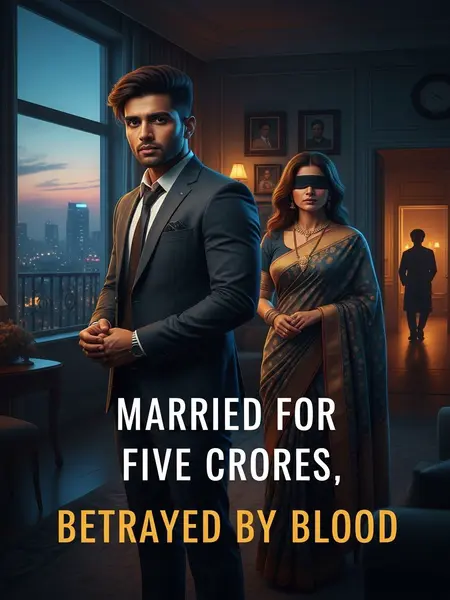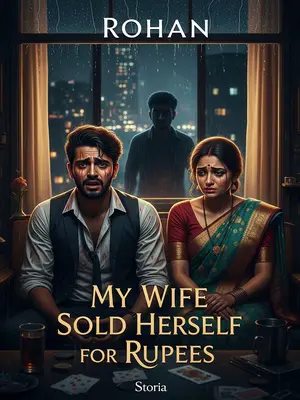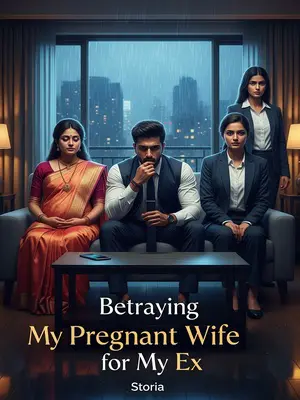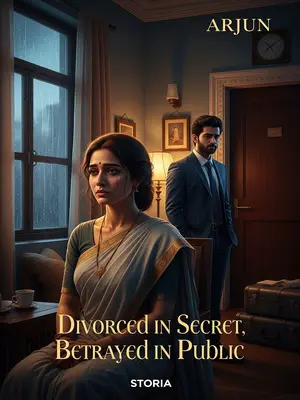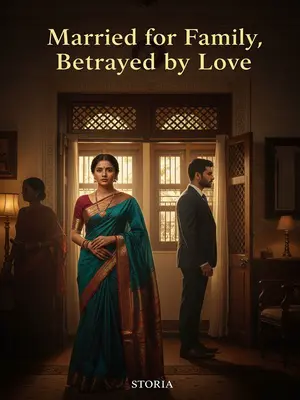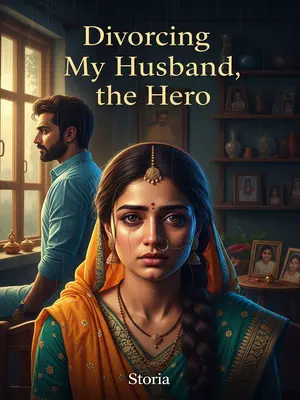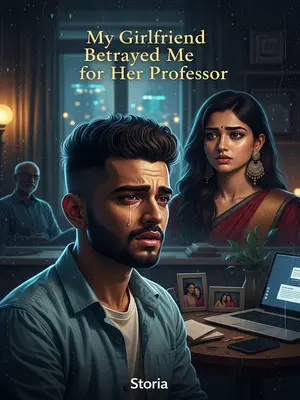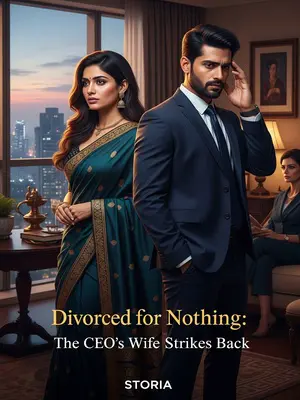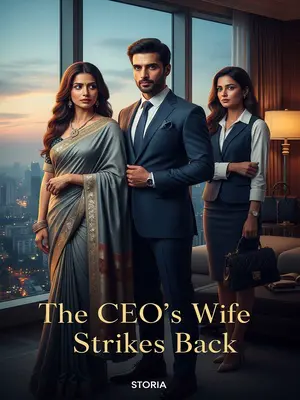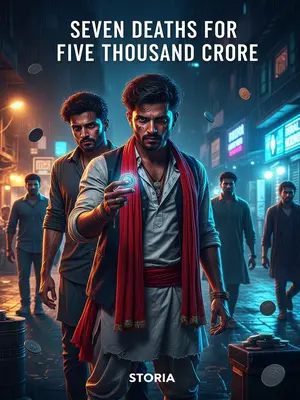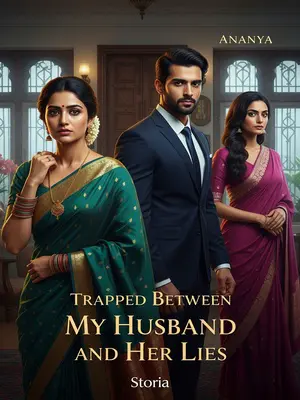Chapter 1: A Call from the Dark
A WhatsApp ping buzzed on my phone, but I ignored it—this call needed my full attention. The AC hummed softly in the corner, blending with the sharp tang of mosquito coil and the faint aroma of last night’s chai in my cramped Delhi flat. The fan above wobbled on its rusted hook, scattering the scent of agarbatti from the pooja corner. Just another ordinary evening, or so I thought—until the Drishti Sewa app lit up my screen.
After checking, I was shocked:
Don’t take it. Someone is trying to harm you.
---
1
Two months ago, I’d signed up as a volunteer on Drishti Sewa, mostly because my mother kept pestering me. “Beta, if you’re free, do some good work, help someone!” she’d say, her voice echoing in my ears. Maybe that’s why I did it—washed my hands, mumbled a quick prayer to Ganpati Bappa on the shelf, and downloaded the app.
Once I registered, the app went silent. Not a single request came through. It was like that WhatsApp group my colony aunty made for ‘cleanliness drive’—all talk, zero action.
But that’s how these things go. Most blind assistance apps have more volunteers than people needing help. It’s normal if you never get a single request.
Every few days, I’d check my phone, half-hoping for a notification. But nothing. The notification light, usually blinking away from family groups, seemed almost bored.
So when the request finally came, I was genuinely excited.
I straightened my kurta, dusted biscuit crumbs from my desk, and hit ‘accept’ like I was prepping for a job interview.
With a weird flutter in my chest, I answered. The screen flickered, then settled on a girl—seventeen, maybe eighteen.
A gold nose pin, hair in a neat braid, a small bindi between her brows—she looked like someone you’d spot at Old Delhi station, waiting quietly beside her mother.
Her features were soft, inviting. The kind of face that made you want to help without thinking twice.
She reminded me of those girls in old Doordarshan serials: calm, patient, carrying an unspoken dignity.
If her eyes opened, I bet her gaze would feel like a gentle breeze in March. But they stayed closed.
Her eyelids fluttered, then rested, her sightless gaze fixed somewhere to my left. The silence was so delicate, I barely dared to breathe.
“Hello, can you help me check the expiry date on a medicine bottle?”
Her gentle voice pulled me back to earth. I cleared my throat. “Of course, no problem.”
A typical Indian slip: “Yes, tell me, Meera ji—oh, sorry, I mean, I can check.” I tried not to sound too nervous.
She held a medicine bottle to the camera. I squinted. It was fluoxetine. Surprised, I blurted, “You... have depression?”
As soon as I said it, I winced inside. Idiot, Arjun.
“Mm.”
She nodded, chin dipping slightly. Even without seeing her eyes, I felt the heaviness in her pause.
I shut up and checked the bottle properly.
The label was frayed at the edge, probably from all the handling. I squinted, tracing my finger on the screen. “It’s fine, it won’t expire for a long time.”
She let out a quiet breath—almost a sigh. Maybe she’d been worrying. “Thank you. There’s another bottle.”
She fumbled, the sound of glass tapping wood. Her fingers moved carefully—counting, memorising, never rushing.
I leaned in again, heart thudding like before exam results.
But as I read the label, my heart dropped.
“Do you know what this medicine is?”
She hesitated. “It should be olanzapine.”
Her words came slowly, almost like she was bracing for a scolding.
I’d dated a psychologist once, so I knew fluoxetine and olanzapine could go together for severe depression.
My mind flashed back to late-night talks about medication combos that could save lives—or ruin them.
“But—”
“Listen, this isn’t olanzapine. It’s phenytoin sodium.”
My voice grew urgent. Phenytoin’s for epilepsy. It can’t be mixed with fluoxetine.
I could hear my own breath in the hush. “Meera, this isn’t safe. If you take both, you could get poisoned. It could be really, really serious.”
There was a long silence. The ticking of my wall clock and the distant whistle of the neighbour’s pressure cooker suddenly felt way too loud. Her face went even paler, lips trembling slightly.
“Really can’t take them together?”
Her voice was tiny, like a lost child at a crowded mela.
“Don’t take it. Someone is trying to harm you.”
I wanted to say more, but my throat closed up. I pressed my palms together, almost like a silent prayer she’d understand how serious this was.
---
2
After hanging up, I couldn’t shake her image from my mind.
For a while, I just stared at the muted TV, the news anchor’s lips flapping without sound. Had I scared her too much? Or not enough? In India, people don’t always want the truth from strangers, especially over a phone call.
But as a volunteer—a stranger—I’d done all I could. Ma’s words floated back: Don’t interfere too much, beta. Help, but know your limit.
The rest was up to her.
My gaze drifted to the pooja corner. Sometimes, you just leave it to God.
But the next day, Drishti Sewa pinged again.
I was halfway through a mouthful of poha, nearly choking when the notification popped up.
It was her again.
I wiped my hands on my kurta, heart thumping for reasons I didn’t want to admit. Why would she call again?
Her request caught me totally off guard:
“Can we meet?”
I couldn’t help myself: “Beta, meeting a strange man alone isn’t safe. Think about it.”
The words slipped out in that typical adult-lecturing-youngster way. My mother would’ve scolded me for even suggesting otherwise.
She gave a bitter smile. “To me, friends and relatives are more dangerous. Strangers might be safest. And don’t call me Beta. My name is Meera.”
Her words had a clarity that shut me up. Even the blind sometimes see more than we do.
I looked at her on the screen. “Hello, Meera. I’m Arjun. If I agree, what do you want from me?”
For a second, I wondered if this was going to get filmi.
“I want to ask you a favour. And I’ll pay you well.”
Her confidence, for someone so young, floored me.
...
I’ll admit, Meera’s appearance was part of why I said yes.
I’m not proud, but we’re all human. Her vulnerability, her gentle way—something tugged at a place inside me I didn’t know was still alive.
It’s hard for a man to say no to a girl who looks so helpless.
The thought crossed my mind—what will people say? Then I brushed it off. Arrey, help is help.
When we met at the café, she looked even better than on video.
Pale yellow salwar, neat plait, soft dupatta. The way she ran her fingers along her cup, listening to the world—she was used to being careful.
I thought maybe she wanted me to witness a police complaint or help investigate who tried to harm her.
In my head, I’d rehearsed all the ways I could help—advice, police, scolding relatives. But nothing prepared me for what she said next.
She didn’t waste time:
“Mr. Arjun, I want to ask you to marry me.”
My ears rang. This wasn’t some shaadi.com prank—her face was too serious, her hands too steady on the table.
For a second, I wondered if I’d misheard. Was this a prank?
I glanced around, suddenly noticing the waiter hovering nearby, pretending to wipe a table, clearly eavesdropping. The aroma of masala chai and buttered bun maska clung to the air.
“This is our first time meeting...”
She interrupted, “Third time.”
She’d counted the video calls. I almost smiled. “Okay, counting those, it’s three. Still not much.”
Meera pressed, “Will you or not?”
Her tone was soft but firm, like someone who’d run out of options.
I went silent. My mind spun—joke? Test? Scam?
She frowned. “Is it because I’m blind?”
I shook my head quickly. “No, no, not that. It’s just—we’re strangers.”
My cheeks went hot, hands fiddling with my cup’s edge. “Aisa nahi hai, Meera. It’s not like that.”
She sighed, tired. “I told you, strangers are safest for me.”
Her voice was heavy, like she’d had to say this too many times.
“Why?”
“Because strangers have no stake in my life.”
There was a finality in her words that left nothing more to ask.
Then she told me her story.
---
